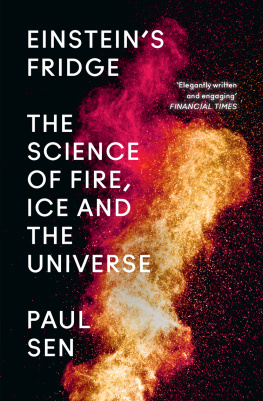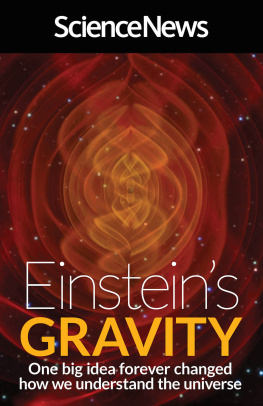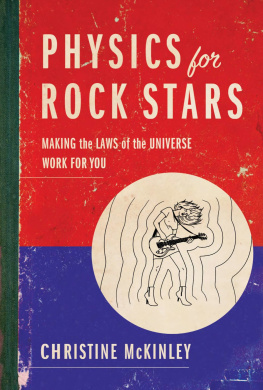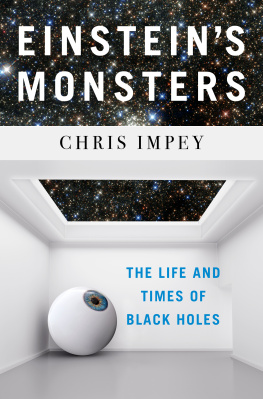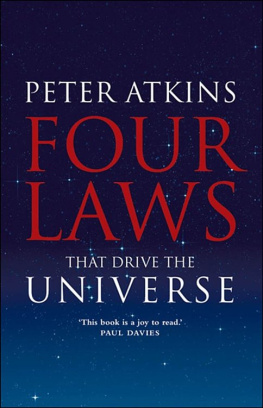Contents
Contents
Guide
EINSTEINS FRIDGE

THE SCIENCE OF FIRE, ICE AND THE UNIVERSE

Paul Sen

William Collins
An imprint of HarperCollinsPublishers
1 London Bridge Street
London SE1 9GF
WilliamCollinsBooks.com
HarperCollinsPublishers
1st Floor, Watermarque Building, Ringsend Road
Dublin 4, Ireland
This eBook first published in Great Britain by William Collins in 2021
First published in the United States by Scribner, an imprint of Simon & Schuster, Inc. in 2021 as Einsteins Fridge: How the Difference Between Hot and Cold Explains the Universe
Copyright Furnace Limited 2021
Image Credits
Original illustrations by Khokan Giri; : fruit fly larvae, Shutterstock.
Paul Sen asserts the moral right to be identified as the author of this work in accordance with the Copyright, Designs and Patents Act 1988
A catalogue record for this book is available from the British Library
All rights reserved under International and Pan-American Copyright Conventions. By payment of the required fees, you have been granted the non-exclusive, non-transferable right to access and read the text of this e-book on-screen. No part of this text may be reproduced, transmitted, down-loaded, decompiled, reverse engineered, or stored in or introduced into any information storage and retrieval system, in any form or by any means, whether electronic or mechanical, now known or hereinafter invented, without the express written permission of HarperCollins.
Source ISBN: 9780008262839
eBook Edition April 2021 ISBN: 9780008262815
Version: 2022-03-17
To Joseph and Nathan
Sen knows how to grab the attention of an audience [An] elegantly written and engaging book Manjit Kumar, Financial Times
When you combine some of the most profound concepts in physics with exceptional storytelling, this is what you get: popular science writing at its very best. Einsteins Fridge is a hugely readable and entertaining history of thermodynamics and how it has created and shaped our world Jim Al-Khalili, author of The World According to Physics
Sen makes a compelling case for how vital thermodynamics is Lively Sam Kean, Wall Street Journal
Superb Einsteins Fridge offers an accessible and crystal-clear portrait of this disciplines breadth [The book] wanders widely while never losing its connection to the central theme Splendid Phil Ball, Physics World
Sen has given thermodynamics the importance it deserves, along the way introducing us to some fascinating people and detail of their lives and work. Hot stuff Brian Clegg, PopularScience
Sen makes a convincing case for the importance of thermodynamics in his impressive debut He accomplishes all of this with splendid prose, making ample use of analogies to explain complex scientific ideas. Sens history of hot and cold is pop-science that hits the mark Publishers Weekly
This entertaining, eye-opening account of how the laws of thermodynamics are essential to understanding the world today from refrigeration and jet engines to calorie counting and global warming is a lesson in how to do popular science right Kirkus Reviews
Sen performs an exquisite examination of an ostensibly simple distinction, the difference between hot and cold Booklist
Although thermodynamics has been studied for hundreds of years, filmmaker Sen writes, few nonscientists appreciate how its principles have shaped the modern world Scientific American
An entertaining, eye-opening account of the extraordinary team of innovators who discovered the laws of thermodynamics essential to understanding the world today from refrigeration and jet engines to calorie counting and global warming Next Big Idea Club
Brilliant story about how the scientific difference between hot and cold explains the whole universe Alok Jha, author of The Water Book
An impressive book with some unusually lucid explanations of the key ideas in thermodynamics Andrea Sella, author of Chemistry for Biologists
Very good book about physics that doesnt puff about mysteries but is great on thermodynamics Mark Miodownik, author of Stuff Matters and Liquid
Thermodynamics is a dreadful name for what is arguably the most useful and universal scientific theory ever conceived.
The word suggests a narrow discipline concerned only with the behaviour of heat. Here indeed lie the subjects origins. But its grown far beyond that and is now more broadly a means of making sense of our universe.
At its heart are three concepts energy, entropy, and temperature. Without an understanding of these and the laws they obey, all science physics, chemistry, and biology would be incoherent. The laws of thermodynamics govern everything from the behaviour of atoms to that of living cells, from the engines that power our world to the black hole at the centre of our galaxy. Thermodynamics explains why we must eat and breathe, how the lights come on, and how the universe will end.
Thermodynamics is the field of knowledge on which the modern world is based. In the years since its discovery, we have seen the greatest improvement in the human condition in the history of our species. We live longer, healthier lives than ever before. Most children born today are likely to reach adulthood. Though much remains wrong with our time, few of us would swap places with our ancestors. Thermodynamics alone didnt cause this, but it was essential for it to happen. From sewage pumps to jet engines, from a reliable electricity supply to the biochemistry of lifesaving drugs, all the technology that we take for granted needs an understanding of energy, temperature, and entropy.
Yet despite its importance, thermodynamics is . The subject is introduced piecemeal in secondary school physics, and the concept of entropy, so vital to our understanding of the universe, is barely mentioned.
I first encountered the study of thermodynamics in the second year towards my undergraduate engineering degree at Cambridge University, where it was presented as relevant only to car engines, steam turbines, and refrigerators. If instead I had been told that it provided a unified and coherent way of understanding all science, I might have paid more attention. Most adults are similarly introduced to the topic; even ones who consider themselves educated are ignorant of humanitys greatest intellectual achievement in the sciences. We count calories, pay energy bills, worry about the temperature of the planet, without appreciating the principles underpinning those actions.
The Cinderella status of thermodynamics is reflected in the way Einsteins science is remembered. All acknowledge his immense and revolutionary contributions, yet few realise the extent to which his work derived from thermodynamics or that he made seminal contributions to the subject. In his so-called miracle year of 1905, he published four papers that transformed physics, including the one featuring the equation E = mc2. This work did not emerge from nowhere. For in the previous three years, Einstein had published three papers on thermodynamics, and the first two of the miracle-year papers one on the atomic structure of matter and the other on the quantum nature of light were continuations of that work. The third miracle-year paper, on special relativity, , and the fourth, in which he derived E = mc2, united the Newtonian concept of mass with the thermodynamic concept of energy.

